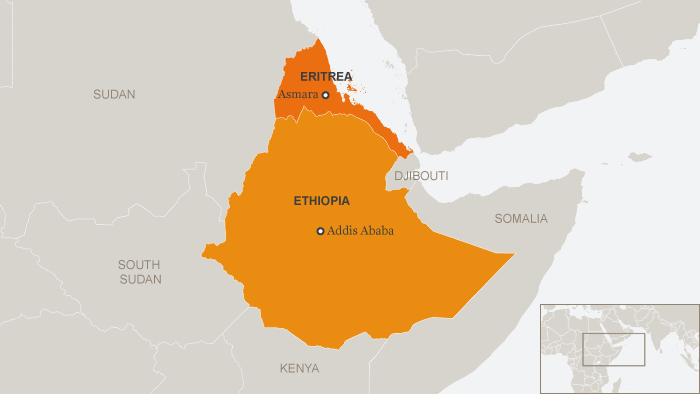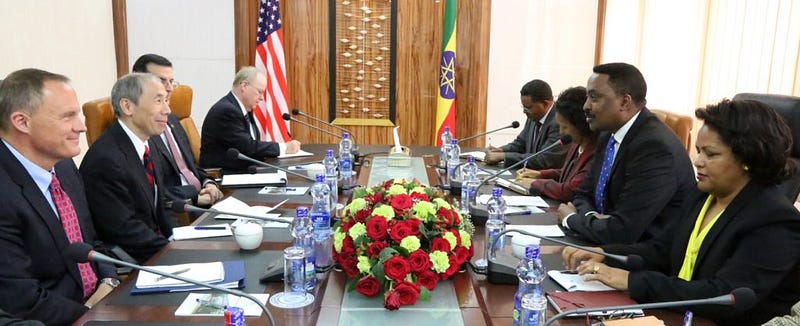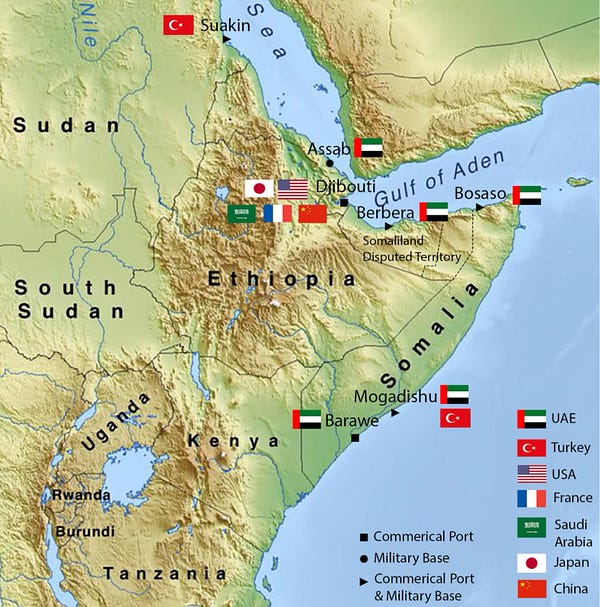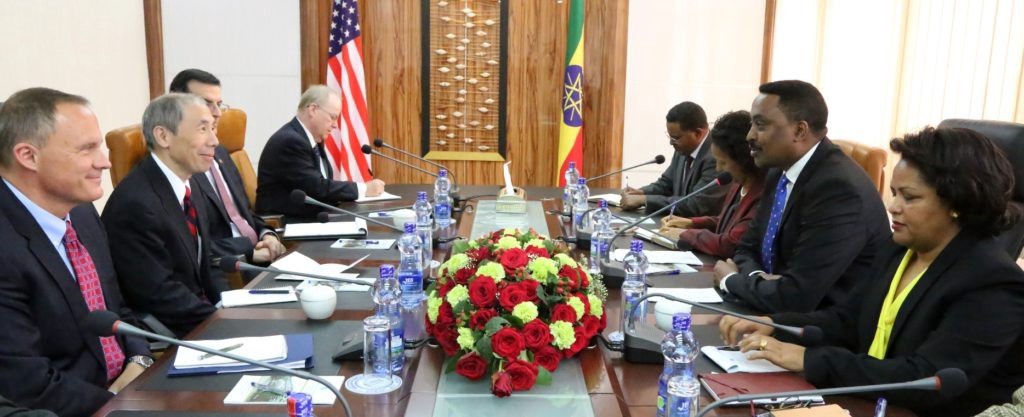
Following the signing of the historic peace agreement between Ethiopia and Eritrea on July 9, 2018 (read Ethiopia and Eritrea: Ushering in Peace), the U.S. Secretary of State issued a statement commending both leaders and pledging support to the peace process. While the reconciliation events seemed to unfold fairly quickly, it was the result of months of diplomatic discussions often mediated by outside countries. During initial talks between the Ethiopian and Eritrean governments, the U.S. played a supporting role in the push for peace. In April 2018, Donald Yamamoto, the most senior U.S. diplomat in Africa, visited both Ethiopia and Eritrea following talks in Washington with high level officials from both sides. Yamamoto helped facilitate peace talks and worked to establish better relations between both countries and the U.S.

In the past, foreign relations with the U.S. have been very different for both Ethiopia and Eritrea. On one hand, relations between the U.S. and Ethiopia, while challenging, have historically been strong. Both maintain embassies and ambassadors with each other and belong to many of the same international organizations. U.S. assistance to Ethiopia includes a variety of investments in areas that improve food security and monetary support for the 90,000+ refugees in Ethiopia. In addition, the U.S. and Ethiopia engage in some bilateral trade, as Ethiopia has one of the fastest growing economies in the world. Trade between the U.S. and Ethiopia will likely increase in the near future as economic reforms take place. (U.S. Department of State). Accusations of human rights violations in Ethiopia have strained the relationship in the past, with some human rights groups even arguing that the U.S. has overlooked abuses for the sake of geopolitical gain. Despite these challenges, the two countries have maintained solid relationships.
On the other hand, relations with Eritrea have been limited. Both countries maintain embassies but no ambassadors to each other. At the request of the Eritrean government, the U.S. offers no assistance to Eritrea and the two countries have very little bilateral trade. U.S. interests in Eritrea have been focused on encouraging democratic political practices, economic reform, improved human rights and regional stability. (U.S. Department of State). UN sanctions imposed on Eritrea have isolated the country from much of the international community, including the U.S.
Peace between Ethiopia and Eritrea means changes to international relations and regional politics. As these changes occur, the U.S. will need to adjust its foreign policy towards the region to take into account these new developments.
Assuming Eritrea takes positive steps towards reform, the US will likely develop warmer relations with the country. Eritrea has had a record of poor human rights, democracy and governance issues, an unaddressed refugee problem, and has been accused of supporting terrorism. (Foreign Policy). It is the hope that with the end of the conflict, Eritrea can focus its resources on resolving these issues. Talks have already begun to remove UN sanctions which will open up trade and the possibility of stronger relationships with other countries.

The “great power competition” between the U.S., China, and Russia (Reuters), has the potential to play out in Ethiopia and Eritrea and will likely encourage further U.S. involvement in the Horn of Africa. This will play out both militarily and economically. China has recently built a naval facility in Djibouti and has been heavily investing in new infrastructure projects such as the construction of four new ports. As Djibouti expands its economic and military relationship with China, Eritrea is poised to act as a counterbalance in the Red Sea. Strategically located, Eritrea has the potential to provide an alternative to Djibouti for the U.S. (Stratfor). Improved US-Eritrean relations will be of mutual benefit to both countries’ geopolitical strength in the region.
In Ethiopia, economic reforms have already begun under the direction of Prime Minister Abiy Ahmed. As its economy continues to grow and state owned businesses begin to privatize, many opportunities for U.S. investment and trade arise. Changes to U.S. foreign policy will reflect a growing economic interest in the region.
Peace between the two nations also affects U.S. counterterrorism efforts. The U.S. has relied on Ethiopia as a partner in counterterrorism in the Horn of Africa in the past. The normalization of relations between Ethiopia and Eritrea could bring cooperation on counterterrorism and regional security, at a time when the U.S. is slowly trying to pull away and wants its partners to take on more of the burden. (Stratfor).
It would be in the best interest of the U.S. to continue to push for sustainable peace between Ethiopia and Eritrea. The U.S. will need to adjust its foreign policy accordingly to both help foster stability and take advantage of new economic, political, and military opportunities. There is an opportunity for the U.S. to bring human rights improvements to the forefront of negotations as a critical part of the peace process. World powers are focused on the Horn of Africa as a critical nexus for geopolitical influence. The next five years of diplomacy will shape the next 50 years of power.




